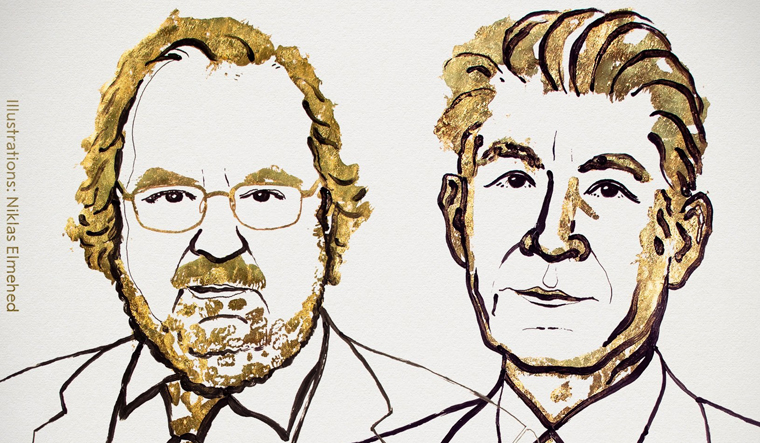The Nobel Prize for Physiology or Medicine for 2018 has been awarded to American scientist James P. Allison and Japanese scientist Tasuku Honjo "for their discovery of cancer therapy by inhibition of negative immune regulation". The awards were announced by Thomas Perlmann, Secretary-General of the Nobel Committee.
This year's Nobel Prize constitutes a landmark in our fight against cancer, the academy said. The discovery made by the two medicine laureates takes advantage of the immune system’s ability to attack cancer cells by releasing the brakes on immune cells, the academy said on its Twitter account.
Taking note of the scientists work, the academy acknowledged the number of people who are affected by the diesease. "Cancer kills millions of people every year and is one of humanity’s greatest health challenges. By stimulating the ability of our immune system to attack tumour cells, this year’s Nobel Prize laureates have established an entirely new principle for cancer therapy," Perlmann said.
“Immune checkpoint therapy”, Perlmann observed, has revolutionised cancer treatment and has fundamentally changed the way we view how cancer can be managed.
BREAKING NEWS
— The Nobel Prize (@NobelPrize) October 1, 2018
The 2018 #NobelPrize in Physiology or Medicine has been awarded jointly to James P. Allison and Tasuku Honjo “for their discovery of cancer therapy by inhibition of negative immune regulation.” pic.twitter.com/gk69W1ZLNI
James P. Allison studied a protein that functions as a brake on the immune system. He realised the potential of releasing the brake and unleashing our immune cells to attack tumours. He developed this concept into a new approach for treating patients.
Tasuku Honjo discovered a protein on immune cells and revealed that it also operates as a brake, but with a different mechanism of action. Therapies based on his discovery proved to be strikingly effective in the fight against cancer.
James Allison and Tasuku Honjo will share the 9-million Swedish kronor (£775,000) prize, announced by the Nobel Assembly at the Karolinska Institute in Stockholm.
The Nobel Prize for Physiology or Medicine is awarded by the Nobel Assembly at Karolinska Institutet since 1901 by the terms of Alfred Nobel's will. The candidate is selected for the Medicine Prize from the names submitted by invited nominators.
Last year Jeffrey C. Hall, Michael Rosbash and Michael W. Young were rewarded for their discoveries of molecular mechanism controlling the circadian rhythm. From 1901 to 2017, 108 Nobel Prizes in Physiology or Medicine have been awarded, of which only 12 were given to women.
The Nobel Assembly has 50 voting members and is composed of professors in medical subjects at Karolinska Institutet in Stockholm, Sweden. A Nobel Committee is elected from among its members for a three-year term.
Earlier in the year, sexual misconduct scandal had rocked the Nobel Foundation forcing them to postpone the 2018 Nobel Prize in Literature. Lars Heikensten, executive director of the Nobel Foundation, said that "the Swedish Academy, has been undergoing a crisis of confidence in recent months. It is both an unusual and difficult decision not to award a Nobel Prize, but in this situation we believe that the Academy’s decision was for the best and that it will help protect the reputation of the Nobel Prize in the long run."
Heikensten said the 2018 Nobel Prize in Literature will be announced together with the 2019 prize. "We hope that this will be the case, but it depends on the Swedish Academy restoring its trust.”


